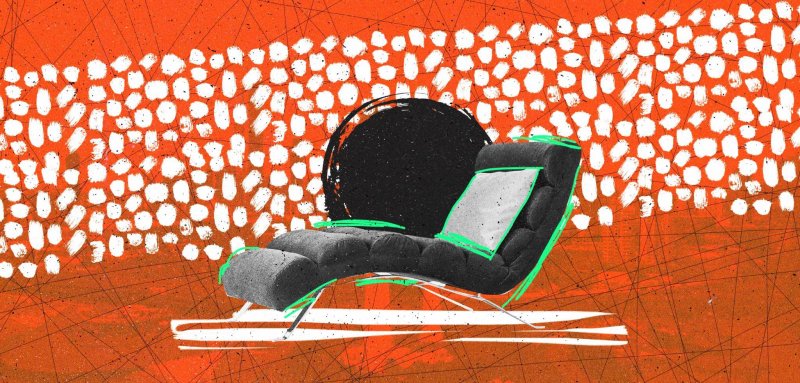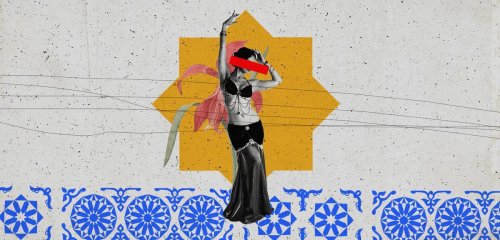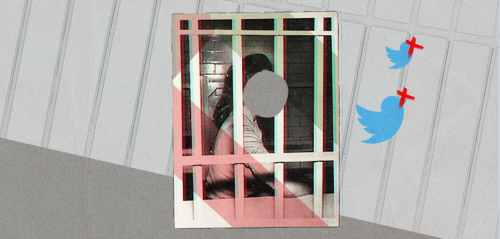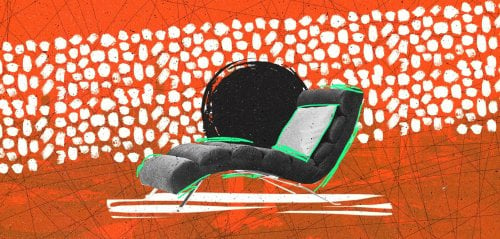Nearly two years passed, soon we’re going to enter the third year marking the day the Coronavirus came into our lives, shaping our daily lives the way it pleases with a partial lockdown sometimes and a total lockdown at others. We turned into lab rats in the hands of governments, the majority of which were ignorant of how to deal with the pandemic, imposing many types of precautionary measures and restrictions, thus we went from living in a vast world to being confined in our homes, not knowing our fate, and not comprehending when we’ll get out of this dark vortex.
This major transformation had a great psychological impact on our minds, increasing cases of depression, obsessive-compulsive disorders, and other psychological symptoms and mental illnesses.
The taboo of visiting a psychiatrist
To this day, visiting a psychiatrist is still one of the biggest taboos in the Arab world, let alone the people of the Gulf who have not yet come out of their cocoon of customs, traditions and beliefs that make it difficult to visit a psychiatrist.
Sarah, a Kuwaiti woman in her forties, has been suffering from panic attacks before the Coronavirus pandemic began. When she ran out of solutions, her final option was to visit a psychiatrist, but she did not continue her treatment as the prices of psychological counseling and treatment rose.
In Kuwait, the cost of one consultation starts at 100 Kuwaiti dinars ($330 US dollars) per hour and reaches up to 200 dinars ($660 US dollars), sometimes even more.
This in itself is a critical factor that would cause those in need of a therapist to give up on the idea. But another factor also plays an equally important role; the societal shaming that accompanies such an approach, which causes many to end up fighting their own battles without professional help.
This did not go without consequences, as it led to the spread of violence that became daily news, especially in the early days of the total and partial lockdown. These incidents of violence, which include an incident where a wife killed her husband by smashing his head with a hammer, and numerous violent instances among young people that led to death in many cases, continue to take place to this day, albeit within a relatively lesser extent.
Children and adolescents have also been greatly affected, as at least one in seven children and young people across the world has lived under stay-at-home policies that were imposed or recommended by their government, which “put their mental health and well-being at risk”, according to a report by UNICEF. “Many children are left feeling afraid, lonely, anxious, and concerned for their future,” an effect that will last for years, according to UNICEF Executive Director Henrietta Fore.
With many children only knowing being confined at home from childhood, there hasn’t been sufficient awareness of the extent of the psychological distress caused by Coronavirus and with not much attention being paid to their mental health.
The recent string of racist statements, incidents of violence, and killings have only been clear evidence of the serious social crises that were caused by the Covid pandemic.
Increasing fear and tension
During the pandemic, writer Amal al-Harthy experienced bouts of anxiety. She tells Raseef22 she felt like she had symptoms similar to those of the Coronavirus, so she sought treatment and ended up getting behavioral therapy without drugs. However she recounts how the problem persisted until she took the vaccine and her mentality began to improve, “as if the effect of the vaccine was also psychological, instead of just physical.” She also spoke of the importance that a person is aware that psychological conditions are normal and that any person may go through them, as long as they are recognized and treated.
To this day, visiting a psychiatrist is still one of the biggest taboos in the Arab world, let alone the people of the Gulf who have not yet come out of their cocoon of customs, traditions and beliefs that make it difficult to visit a psychiatrist
For her part, Lama (pseudonym), a university doctor, says that she fell into depression in the middle of the pandemic. She tells Raseef22 that at first she was happy to learn new skills such as cooking and enjoying her time with the family, but after a while, when she started to feel like she was being deprived of the things she loves, such as work and travel, she began to have dark thoughts that greatly and negatively affected her mental state.
So Lama turned to a life coach. “It greatly helped me in changing the way I think. I also invested my time in writing, which helped me overcome my depression that had lasted for an entire year.”
Meanwhile, Saad Ibrahim, a Kuwaiti middle school teacher in his mid-thirties and father of three, went through a similar experience.
His mental health began to deteriorate with the start of the quarantine period, and worsened with the death of his father. “Being a man, I had to bear the responsibility of the family without showing any weakness, which increased the pain I was experiencing. I stayed in this spiral for months, suffering from unprovoked fits of rage, until I found an online advertisement for an organization that offers psychological counseling at reasonable prices, and indeed this experience has changed me for the better. After committing to the sessions for a year, my mental state has greatly improved,” he says.
Basma al-Saad, a specialist in rapid transformational therapy, notes that “during the Coronavirus pandemic, there was an increase in mental health problems, most notably depression and obsessive-compulsive disorders, as unprecedented conditions led to high levels of fear and tension in Kuwaiti society and the world.”
She tells Raseef22, “As humans, we have emotional needs, including the need to communicate with others and having a sense of safety. In light of the lockdown and having to isolate and stay at home, people felt lonely and the feeling of fear from this pandemic increased as well.”
She indicates that “children have also suffered during the Covid pandemic due to the absence of their normal school routine and having to undergo remote learning, in addition to the isolation that led to anxiety and an addiction to video games. This leads to dangerous consequences for some that may reach self-harm.”
People breaking their silence and sharing stories of psychological disorders, especially celebrities such as Majda AlSabah and broadcaster Hashem Asad, contributed to breaking barriers and spreading awareness on psychological treatment in Kuwait
The increase in the demand for psychological treatment during the pandemic in Kuwait has led to an increase in prices, especially since the price of the session is determined by the type of treatment and techniques used in psychotherapy, as al-Saad explained.
But at the same time, she considers psychotherapy “an investment in a person’s life.” In her opinion, “the most important of all is that a person is ready to begin change, and this requires courage and commitment, and the high prices increase commitment and responsibility for the individual.”
Al-Saad warns that neglecting treatment leads to the deterioration of both mental and physical health, “since suppressing thoughts and underlying psychological issues causes a person to resort to addiction to soothe, relieve, and numb emotional pain, through alcohol, drugs, overeating or even shopping, and here the problem becomes more complicated and controlling it becomes more difficult, because the body is harmed by these unhealthy behaviors, and the levels of stress and anxiety thrust upon the body and its immune system increase.”
Despite the awareness of many of the importance of psychological treatment and therapy, the accompanying societal shaming still controls and dominates a large number of people.
But some people breaking their silence and sharing stories of psychological disorders they’ve faced and suffered from have made an impact — most notably a number of celebrities such as Sheikha Majda AlSabah, a pioneer in the cosmetic world who announced in 2018 that she suffered from severe depression, fought her battle bravely, and founded the ASAP initiative, a campaign promoting mental health awareness, as well as Kuwaiti broadcaster Hashem Asad, who appeared in an interview with al-Qabas Online in December 2021 to talk about his story with mental illness. These have contributed, if only slightly, to spreading awareness and breaking any barriers standing in the way of psychological treatment and acknowledging any kind of mental disorder.
Saad Ibrahim advises anyone who feels ashamed to visit a doctor or psychiatrist to resort to online consultations because this lifts the societal shaming factor, “and makes you more comfortable to speak and vent to those who do not know you, which in turn makes you much more honest,” noting that when he relapses from time to time, he just books an appointment online.
رصيف22 منظمة غير ربحية. الأموال التي نجمعها من ناس رصيف، والتمويل المؤسسي، يذهبان مباشرةً إلى دعم عملنا الصحافي. نحن لا نحصل على تمويل من الشركات الكبرى، أو تمويل سياسي، ولا ننشر محتوى مدفوعاً.
لدعم صحافتنا المعنية بالشأن العام أولاً، ولتبقى صفحاتنا متاحةً لكل القرّاء، انقر هنا.






